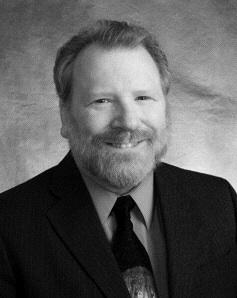Washington Mutual, Inc. was an American savings bank holding company based in Seattle. It was the parent company of Washington Mutual Bank, which was the largest savings and loan association in the United States until its collapse in 2008.

The Bank of America Corporation is an American multinational investment bank and financial services holding company headquartered at the Bank of America Corporate Center in Charlotte, North Carolina, with investment banking and auxiliary headquarters in Manhattan. The bank was founded by the merger of NationsBank and Bank of America in 1998. It is the second-largest banking institution in the United States and the second-largest bank in the world by market capitalization, both after JPMorgan Chase. Bank of America is one of the Big Four banking institutions of the United States. It serves about 10 percent of all American bank deposits, in direct competition with JPMorgan Chase, Citigroup, and Wells Fargo. Its primary financial services revolve around commercial banking, wealth management, and investment banking.

Lehman Brothers Inc. was an American global financial services firm founded in 1850. Before filing for bankruptcy in 2008, Lehman was the fourth-largest investment bank in the United States, with about 25,000 employees worldwide. It was doing business in investment banking, equity, fixed-income and derivatives sales and trading, research, investment management, private equity, and private banking. Lehman was operational for 158 years from its founding in 1850 until 2008.

The KfW, which together with its subsidiaries DEG, KfW IPEX-Bank and FuB forms the KfW Bankengruppe, is a German state-owned investment and development bank, based in Frankfurt. As of 2014, it is the world's largest national development bank and as of 2018 Germany's third largest bank by balance sheet. Its name originally comes from Kreditanstalt für Wiederaufbau. It was formed in 1948 after World War II as part of the Marshall Plan.

The Office of Thrift Supervision (OTS) was a United States federal agency under the Department of the Treasury that chartered, supervised, and regulated all federally chartered and state-chartered savings banks and savings and loans associations. It was created in 1989 as a renamed version of the Federal Home Loan Bank Board, another federal agency. Like other U.S. federal bank regulators, it was paid by the banks it regulated. The OTS was initially seen as an aggressive regulator, but was later lax. Declining revenues and staff led the OTS to market itself to companies as a lax regulator in order to get revenue.

Chevy Chase Bank, F.S.B. was the largest locally based banking company in the Washington Metropolitan Area. It was acquired by Capital One in February 2009, and rebranded as Capital One Bank in September 2010. Despite its name, Chevy Chase Bank was a federally chartered thrift regulated by the Office of Thrift Supervision, rather than a bank.

Flagstar Financial, Inc. (FLG), is a bank holding company for Flagstar Bank headquartered in Hicksville, New York. In 2023, the bank operated 395 branches in New York, Michigan, New Jersey, Ohio, Florida, Arizona and Wisconsin. Branches used to be operated under the names Queens County Savings Bank, Roslyn Savings Bank, Richmond County Savings Bank, Roosevelt Savings Bank, and Atlantic Bank in New York; Garden State Community Bank in New Jersey; Ohio Savings Bank in Ohio; and AmTrust Bank in Arizona and Florida. However, they rebranded all of these under the Flagstar name on February 21, 2024. FLG is on the list of largest banks in the United States and is one of the largest lenders in the New York City metro area.
IndyMac, a contraction of Independent National Mortgage Corporation, was an American bank based in California that failed in 2008 and was seized by the United States Federal Deposit Insurance Corporation (FDIC).

WSFS Financial Corporation is a financial services company. Its primary subsidiary, WSFS Bank, a federal savings bank, is the largest and longest-standing locally managed bank and trust company headquartered in Delaware and the Greater Delaware Valley. WSFS operates from 114 offices, 88 of which are banking offices, located in Pennsylvania (57), Delaware (39), New Jersey (14), Florida (2), Virginia (1) and Nevada (1) and provides comprehensive financial services including commercial banking, retail banking, cash management and trust and wealth management.
The subprime mortgage crisis impact timeline lists dates relevant to the creation of a United States housing bubble, the 2005 housing bubble burst and the subprime mortgage crisis which developed during 2007 and 2008. It includes United States enactment of government laws and regulations, as well as public and private actions which affected the housing industry and related banking and investment activity. It also notes details of important incidents in the United States, such as bankruptcies and takeovers, and information and statistics about relevant trends. For more information on reverberations of this crisis throughout the global financial system see 2007–2008 financial crisis.
West Coast Bancorp was a publicly traded financial services holding company headquartered in Lake Oswego, Oregon. Its principal holding was West Coast Bank, a full-service, commercial bank with 63 branches in 40 cities in western and central Oregon and western Washington. As of December 31, 2006, the company had deposits totaling $2 billion and net loans of $1.9 billion. In September 2012, Columbia Banking System of Tacoma bought West Coast.
BanxQuote was a provider and licensor of indexes and analytics, which were used as a barometer of the U.S. banking and mortgage markets. Its bank rate website and consumer banking marketplace featured daily updated market rates on banking, mortgage and loan products in the United States, until its close in 2010.

The bankruptcy of Lehman Brothers, also known as the Crash of '08 and the Lehman Shock on September 15, 2008, was the climax of the subprime mortgage crisis. After the financial services firm was notified of a pending credit downgrade due to its heavy position in subprime mortgages, the Federal Reserve summoned several banks to negotiate financing for its reorganization. These discussions failed, and Lehman filed a Chapter 11 petition that remains the largest bankruptcy filing in U.S. history, involving more than US$600 billion in assets.
The government interventions during the subprime mortgage crisis were a response to the 2007–2009 subprime mortgage crisis and resulted in a variety of government bailouts that were implemented to stabilize the financial system during late 2007 and early 2008.
The New York State Banking Department was created by the New York Legislature on April 15, 1851, with a chief officer to be known as the Superintendent. The New York State Banking Department was the oldest bank regulatory agency in the United States.

William Kurt Black is an American lawyer, academic, author, and a former bank regulator. Black's expertise is in white-collar crime, public finance, regulation, and other topics in law and economics. He developed the concept of "control fraud", in which a business or national executive uses the entity he or she controls as a "weapon" to commit fraud.
Bank United Corporation, headquartered in Houston, Texas, was a broad-based financial services provider and the largest publicly traded depository institution headquartered in Texas before its merger with Washington Mutual in 2001. Bank United Corp. conducted its business through its wholly owned subsidiary, Bank United, a federally chartered savings bank. The company operated a 155-branch community banking network in Texas, including 77 in the Dallas/Fort Worth Metroplex, 66 in the greater Houston area, five in Midland, four in Austin, and three in San Antonio; operated 19 SBA lending offices in 14 states; was a national middle market commercial bank with 23 regional offices in 16 states; originated mortgage loans through 11 wholesale offices in 10 states; operated a national mortgage servicing business serving approximately 324,000 customers, and managed an investment portfolio. As of June 30, 2000, Bank United Corp. had assets of $18.2 billion, deposits of $8.8 billion, and stockholder's equity of $823 million.

The 2007–2008 financial crisis, or the global financial crisis (GFC), was the most severe worldwide economic crisis since the 1929 Wall Street crash that began the Great Depression. Causes of the crisis included predatory lending in the form of subprime mortgages to low-income homebuyers and a resulting housing bubble, excessive risk-taking by global financial institutions, and lack of regulatory oversight, which culminated in a "perfect storm" that triggered the Great Recession, which lasted from late 2007 to mid-2009. The financial crisis began in early 2007, as mortgage-backed securities (MBS) tied to U.S. real estate, as well as a vast web of derivatives linked to those MBS, collapsed in value. Financial institutions worldwide suffered severe damage, reaching a climax with the bankruptcy of Lehman Brothers on September 15, 2008, and a subsequent international banking crisis.

Glacier Bancorp, Inc. is a regional multi-bank holding company headquartered in Kalispell, Montana, United States. It is a successor corporation to the Delaware corporation originally incorporated in 1990. The company provides personal and commercial banking services from 221 locations in Montana, Idaho, Utah, Washington, Wyoming, Colorado, Arizona, and, Nevada.

Joseph M. Otting is an American businessman and government official. He served as the 31st Comptroller of the Currency from November 27, 2017 to May 29, 2020.









